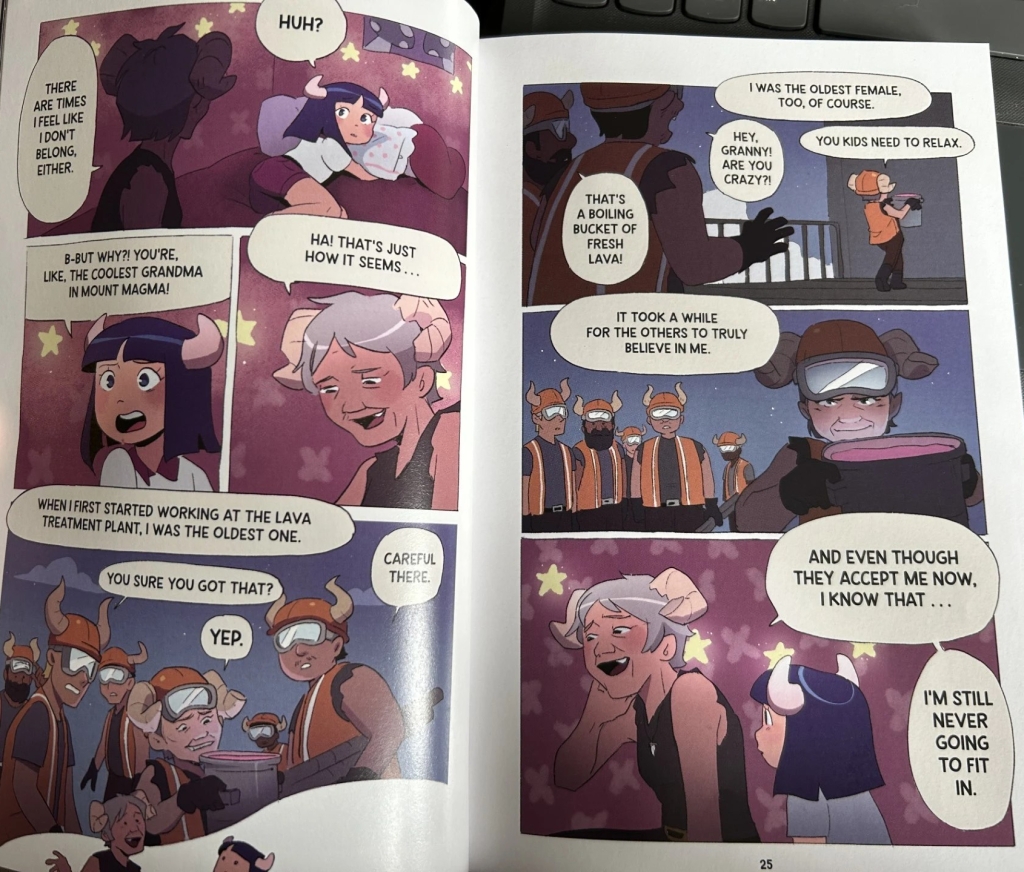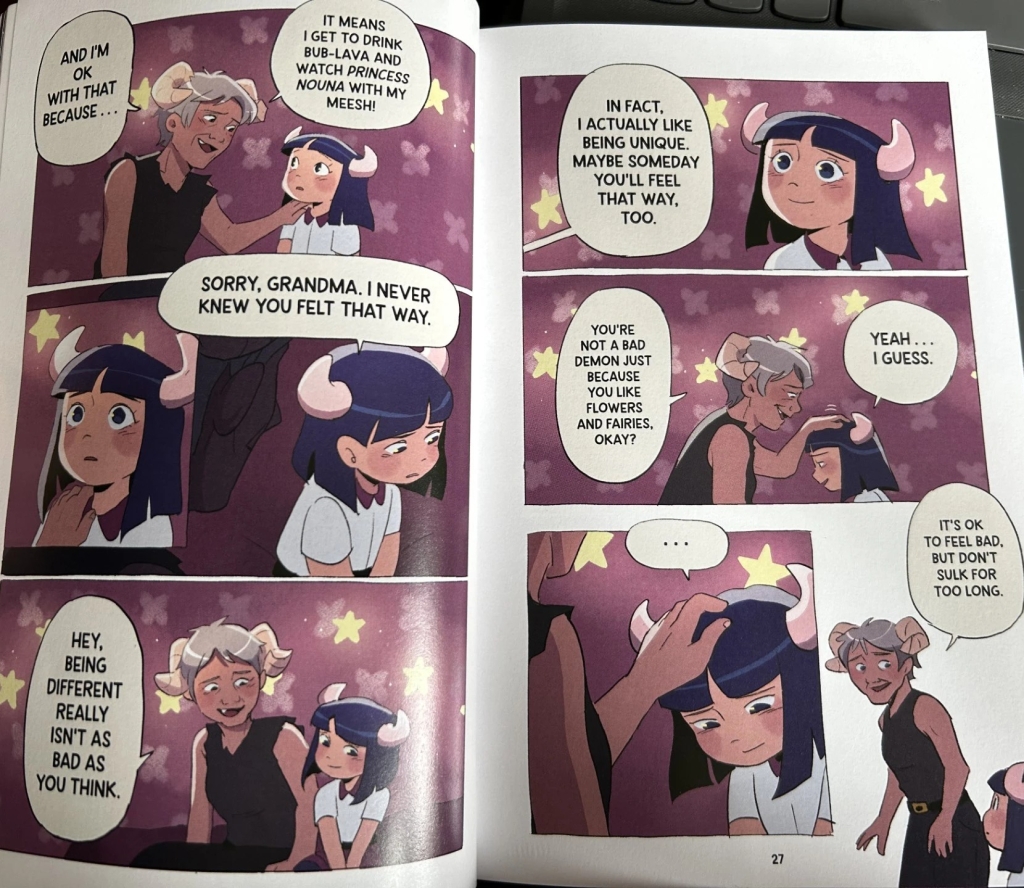If you haven’t already heard about it, Meesh the Bad Demon is a new graphic novel from Michelle Lam that is the first in the series. The book was released last week and I have no doubt it is going to be a very popular choice in KS2 classrooms. Despite being almost 300 pages, I think there will be plenty of children in LKS2 that will adore Meesh and her first adventure. The artwork is enticing and there is plenty of action throughout to keep the story moving at a breakneck speed. For my stop on the tour I am going to explore how you can use the book on your classroom to support teaching. If you want to buy a copy of the book you can find it using this link here:
https://uk.bookshop.org/lists/great-graphic-novels-for-kids
How to use Meesh the Bad Demon in class:
There’s lots of different ways that the book could be used in class especially in regards to writing prompts and setting description. However, I am going to focus on how it could be used to support discussions in PSHE. I would suggest using page 24-27 for this particular activity but there lots of other sections in the book that would lend themselves to purposeful discussions. In the pages (shown below) discusses her life and how she often feels like she doesn’t fit in at her workplace but has come to live with it The conversation explores the idea of embracing unique traits and not trying to conform to be the same as everyone else.


There’s a range of different ways to approach these pages, but my first instinct would be to hone in on the first panel and the idea of what it means to belong. Get the class to think about situations where they might have felt they didn’t belong or explore the opposite concept and think about where they feel they can truly be themselves. Why are some places or people better for behaving like this? What causes us to feel like we aren’t fully welcomed or free to show our personality? Exploring questions like this may require some extra prompting or examples from your own experience but it should allow lots of rich discussion about how we feel differently in different places or situations. It’s important to make everyone realise this is normal but also to explore how you can combat this. An effective short task would be to get the class to write a short list of advice for people on what they can do when they feel uncertain in a setting, simple tips that could help them feel more comfortable or simply to relieve their fears.
After focusing on times when you may not fit in, I would then move onto page 26 when Gran is discussing how it isn’t always a bad thing to be different. She follows this up by declaring her enjoyment for feeling unique which would be the next point I would focus discussion on. Explore what it truly means to be unique, how many people think they are unique but are simply following what others tell them to do? I would also try to focus on whether they embrace their unique attributes or do they try and minimise them instead? Get them to really think about their character and how things they do without thinking may be things that other people admire about them or struggle to do themselves. Remind them of abstract concepts such as being patient or caring, as much as we try to promote these values there are still plenty of people who don’t practise them or even acknowledge how important they are. They could easily do some art or writing about themselves at this point based around what makes them unique and basically what makes them who they are.
To finish, I would use the very last panel and discuss the importance of this advice. Get them to think about times when they have missed out or enjoyed something less because they were still thinking about an earlier issue/concern. The idea of being able to be annoyed but limiting how long could be something many haven’t thought about for. Empowering disappointment is something that people often try to avoid but it’s important to show pupils that it’s okay to feel unhappy about something but it’s not okay to let it consume you and become your only focus. After exploring this idea I would get each member of the class to write a short rule or precept (could tie in Wonder) that others could follow like the one Gran has used here.
These are just some ideas on how Meesh the Bad Demon could work in your class and are by no means definitive or the ultimate lesson, simply a way I would use the book to approach my teaching in a slightly different manner that could open up some rich and varied discussion. Released on August 3rd by Faber Children, get your copy of Meesh the Bad Demon now.